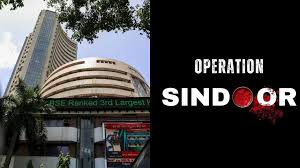Pushpa Telugu Movie Review, Rating
పుష్ప తెలుగు సినిమా రివ్యూ ,రేటింగ్
-
The Price of Confession Review – A Tense, Twisted Descent Into Morality and Madness
-
Founders Get Rich, Investors Escape, Public Gets Trapped — The New-Age IPO Tragedy.
-
Krithi Shetty’s Tamil Debut Is Cursed? Every Film She Signs Gets Postponed!
-
How Chennai’s Iconic Institutions Rose on Disappearing Waterbodies — A History Nobody Wants to Revisit
-
From ₹88 Cr to ₹10,107 Cr — BJP’s Money Mountain vs Congress’s Money Molehill. What Happened?
-
Modi Spoke 121 Times About ‘Vande Mataram’ — But Zero Times About India’s Actual Crises
-
India Says Global Air Rankings Don’t Count — Netizens Ask: “So 500 AQI Is the New Normal Now?
-
Who Becomes a Judge in India? The Data Paints a Disturbingly One-Sided Picture
-
India–US Strategic Partnership Deepens After Modi–Trump Talks
-
Year Ender 2025: Top Highest-Paid Bollywood Actresses Who Had No Releases in 2025
-
“Root Canal Benefits: Saving Teeth and Relieving Oral Diseases”
-
“Why Preterm Births Are Rising in India” ..?
-
AIIMS Introduces Two-Hour Surgery to Treat Diabetes .. ?
-
Bangladesh Confirms Election Schedule After Hasina’s Removal ..
-
From Burnout to Buzz: Inside the Gen Z Trends Changing 9-to-5 Forever ..
-
Diljit Dosanjh Shares His On-Set Routine With Imtiaz Ali ..?!
-
Shreya Ghoshal and Badshah Spark a Playful ‘Samosa Battle’ on Indian Idol 16 Set ..?
-
Nandita Das: How ‘Fire’ Shaped My Journey ..?
-
Abhishek Bachchan’s Lifelong Dream: Watching Sholay in Cinemas .!?
-
ECI Revises SIR Schedule: New Deadlines for UP and Other States
-
Will Alia Bhatt Travel to Pakistan for Work?
-
Truth behind airlines flight 370....!?
-
Hrithik Roshan Praises Dhurandhar’s Storytelling ..!
-
Akshay's new avatar in the poster of 'Mahakali'
-
Anupam Kher's mother, Dulari Kher, became angry with him ..?
-
Kimi Katkar of “Jumma Chumma” Fame Now Living a Quiet Life in Goa
-
Gaurav Khanna's father is upset with Farhana Bhatt's comment ..?
-
She Wanted to Be a Sweeper; Today She Owns ₹600 Crore — Do You Know Her Story?
-
Dhurandhar Rules Box Office ..!?
-
Abs Are Made in the Kitchen: Isha Koppikar’s Fitness Message
-
“Our Black and Red Army Will Deliver the Right Lesson!” – CM M.K. Stalin at DMK Rally
-
Plan 440: Stalin Sets a Unique Target, DMK to Take a Different Route – Did You Notice?
-
“How Will the Constituency Value Me If I Leave Arivalayam?” – Former DMK MLA Adalarasan Speaks Out
-
Vijay’s Former Manager P.D. Selvakumar Joins DMK
-
“Bharati Shone with National Spirit”: Prime Minister Modi Praises the Poet in Tamil
-
DMK Adopts New Strategy to Secure Victory in Upcoming Elections
-
UN Award for Supriya Sahu: Chief Minister Stalin Hails Tamil Nadu’s Pride
-
Prime Minister Modi Praises Poet Bharathiyar’s Enduring Influence on People
-
Junior World Cup Victory: German Team Congratulated by Chief Minister M.K. Stalin
-
Is the 2026 Kia Seltos Bigger and Better Than the Current Model? Dimensions Compared
-
2026 Kia Seltos vs Tata Sierra: Dimension and Specs Comparison
-
New Kia Seltos vs Tata Sierra: Top-Trims Compared Across Features and Technology
-
Realme 16 Pro Series Confirmed to Launch in India: Expected Price, Specs, and More
-
YouTube TV to Launch 10+ Themed Packages in Major Redesign, Starting with Sports
-
Apple Could Equip 2026 Budget iPad with A19 Chip: Industry Buzz
-
Smart Investing: The Secret to Rebalancing Your Portfolio That Every Investor Should Know
-
ITR Refund Delayed? No Need to Worry – Expect a Bigger Payout With Interest This December
-
FD vs Bonds: With Interest Rates Falling, Should Investors Shift Money from Fixed Deposits to Bonds?
-
RBI Cuts Repo Rate: A Golden Opportunity for Homebuyers as Banks Reduce Home Loan Interest Rates
-
RAC Ticket Rules: Can an RAC Seat Get Confirmed During the Journey? Complete Railway Process Explained
-
Section 54EC Tax Relief: Can You Claim Exemption Twice by Investing Again in Capital Gains Bonds?
-
Why Gold Jewellery May Not Be a Smart Investment: Experts Explain the Hidden Costs
-
How to Recover Unclaimed Money from Banks, Mutual Funds, and Insurance: Complete Step-by-Step Guide
-
Credit Card Limit Increase Scams on the Rise: How to Protect Your Money
-
How to Build a Big Fund with Small Investments: Best Options for New Investors
-
Indian e-Passport Launched: Who Can Apply, Costs, and Step-by-Step Process
-
6 Major Banks Cut Home Loan Interest Rates After RBI Repo Rate Reduction — How Your EMI Will Benefit
-
SIP Default: What Happens If You Miss a Payment and Its Impact on Your Investments
-
RBI Summer Internship 2025: Last Chance to Apply for Paid Internship Programme
-
Massive SIM Card Scam Exposed in Delhi: CBI Uncovers Illegal Issuance of Thousands of SIMs
-
Fake Profiles on Instagram & Facebook: New Fraud Trend Targeting Users — How to Stay Safe
-
WBSSC Recruitment 2025: Registration Deadline Extended for Group C & D Posts — Apply by December 12
-
Bombay High Court Recruitment 2025: Registration for 2381 Posts to Begin Soon
-
UP Home Guard Recruitment 2025: High Competition — Apply Before December 17
-
UPSSSC Admit Card 2025 Released — Assistant Store Keeper Typing Test Scheduled
-
Bihar SHS Exam Date 2025: ANM and Ophthalmic Assistant Exams Scheduled
-
RSSB Driver Answer Key 2025 Released — Download Now
-
CLAT 2026 Answer Key Released — Raise Objections Before the Deadline
-
IBPS PO 2025 Admit Card: Interview Call Letters Released — Download Now
-
MPSOS Admit Card 2025: Released for Class 5th & 8th — Exams Starting December 15
-
IBPS MT Result 2025: IBPS PO-15 Main Exam Results Declared — Download Your Scorecard Now
-
DTU Vacancy 2025: Apply Soon for Non-Teaching Posts at Delhi Technological University — Attractive Salary Offered
-
Government Job Alert 2025: District Court Announces Recruitment Without Exam
-
Samantha Asks the Question Women Are Shy to Voice — And the Answer Is a Game Changer
-
UPPRPB: UP Police Computer Operator Grade-A Results Declared —
-
Teaching Jobs 2025: 3400+ Special Teacher Vacancies Announced —
-
BHU Teacher Vacancy 2025: Recruitment Open for Teachers & Principals in BHU Schools
-
RBI Internship 2025: Golden Opportunity for Students — Apply by December 15; Stipend Included
-
DRDO Jobs 2025: Application Form Released for 700+ Vacancies — CEPTAM 11 Recruitment Link Now Active
-
BSSC Jobs 2025: Last Date Approaching for 379 Sports Trainer Posts — Apply Now
-
KVS–NVS Vacancy 2025: CBSE Issues Revised Vacancy List — Check Updated Posts
-
Pooja Hegde Selfie Photo Looked 100% Real — And That’s the Scariest Part.
-
Rakul Preet Singh Just Bent Reality — And the Camera Melted First.
-
Alia Bhatt’s Black-Gown Moment at Red Sea Is Proof She’s in Her Global Fashion Era.
-
“Annagaru Vostaru: A Grand, Tough World, Says Karthi”
-
“JioHotstar 25 New South Projects: ₹4000 Cr but No Buzz?”
-
“Ram Charan’s Peddi on War Footing: Why So Aggressive?”
-
“War 2 Setback Won’t Stop YRF: Pathaan 2 Confirmed”
-
“Tollywood’s Senior Heroes Are at Top Gear”
-
“Akhanda 2 GO’s – Timely Move This Time!”
-
If Peddi the steps back, will Ustaad step in?
-
DMK Steps Into Campaign Mode with “En Vakkuchaa¬vadi – Vetri Vakkuchaa¬vadi” Strategy
-
“If anyone thinks they can come to Tamil Nadu with a ‘Delhi Shah’ attitude, they are mistaken” — Chief Minister Stalin’s Strong Response
-
DMK Launches “En Vakkuchaa¬vadi – Vetri Vakkuchaa¬vadi” Campaign Today
-
“What difference does it make who comes? What difference do their plans make?” — M.K. Stalin’s Post on X Gains Attention
-
Chief Minister M.K. Stalin Holds Consultation with DMK Booth Committee Members
-
Minister Ma. Subramanian Distributes Petrol Scooters and Assistive Devices Worth ₹59 Lakh to Persons with Disabilities
-
A Million-Dollar Visa? The Internet Explodes Over Trump’s Latest High-Stakes Promise.
-
Trump Goes Nuclear: Demands CNN Be Sold in Any Warner Bros. Deal — Calls Network ‘Poison.’
-
Bulgaria Explodes: Streets Flood as Citizens Declare War on Corruption.
-
Australia Bans Social Media for Kids. Kids Immediately Laugh and Bypass It.
-
Want to Visit America? Prepare to Surrender Your Social Media Life.
-
Your Love Story Needs THIS: The Gemini Prompts Taking Over Instagram Reels!
-
India, Your Chicken Is Making You Sick — And No One Is Warning You.
-
Opposition Drops a Bombshell: 8 Major Contradictions Rahul Gandhi Says the Home Minister Must Answer.
-
Fake Ghee Wasn’t the End — Now a Fake Silk Scam Hits One of India’s Holiest Temples
-
Luxury or ‘Seva’? The Billion-Rupee Debate Around RSS’ Delhi Headquarters Sparks Big Questions.
-
India Shows 0% Inflation — Meanwhile the Middle Class Is Bleeding Dry at the Grocery Store!
-
India’s ‘Best’ Police Station Just Destroyed a Student’s Life — Until CCTV Exposed the Lie.
-
Was Congress Misled from Within? Why Praveen Chakravarty’s Role Still Sparks Panic Within Congress!
-
London’s Big Move: Why the World Is Now Studying Ambedkar, Kalaignar, and Dravidian Federalism!
-
Face-Swap Fraudsters & AI Angels — The AI Beauties on Instagram Are Designed to Empty Your Bank, Not Love You!
-
From Biggest Cheerleader to Brutal Critic: Why Vikatan Just Turned on Vijay — And What It Really Signals!
-
10 Years. 24,679 Crores Requested by Tamil Nadu. 4,136 Crore Received. This Is Not Federalism — It’s Punishment.
-
Coimbatore Airport Just Leveled Up — And This Is the Upgrade Tamil Nadu Has Been Waiting For
-
How a Single Speech Exposed Vijay’s Politics as Script-Reading Without Homework
-
Putin Dropped a Truth Bomb on India’s Language Politics — And It’s Devastating
Empowering 140+ Indians within and abroad with entertainment, infotainment, credible, independent, issue based journalism oriented latest updates on politics, movies.
India Herald Group of Publishers P LIMITED is MediaTech division of prestigious Kotii Group of Technological Ventures R&D P LIMITED, Which is core purposed to be empowering 760+ crore people across 230+ countries of this wonderful world.
India Herald Group of Publishers P LIMITED is New Generation Online Media Group, which brings wealthy knowledge of information from PRINT media and Candid yet Fluid presentation from electronic media together into digital media space for our users.
With the help of dedicated journalists team of about 450+ years experience; India Herald Group of Publishers Private LIMITED is the first and only true digital online publishing media groups to have such a dedicated team. Dream of empowering over 1300 million Indians across the world to stay connected with their mother land [from Web, Phone, Tablet and other Smart devices] multiplies India Herald Group of Publishers Private LIMITED team energy to bring the best into all our media initiatives such as https://www.indiaherald.com

 There have been many attacks between india and pakistan, from the 1999 Kargil war to the 2019 Pulwama attack, and today's Operation Sindoor. These conflicts have created fluctuations in India's Sensex and Nifty indices. While the markets have faced a decline in some conflicts, they have risen strongly in others.
There have been many attacks between india and pakistan, from the 1999 Kargil war to the 2019 Pulwama attack, and today's Operation Sindoor. These conflicts have created fluctuations in India's Sensex and Nifty indices. While the markets have faced a decline in some conflicts, they have risen strongly in others.



 click and follow Indiaherald WhatsApp channel
click and follow Indiaherald WhatsApp channel